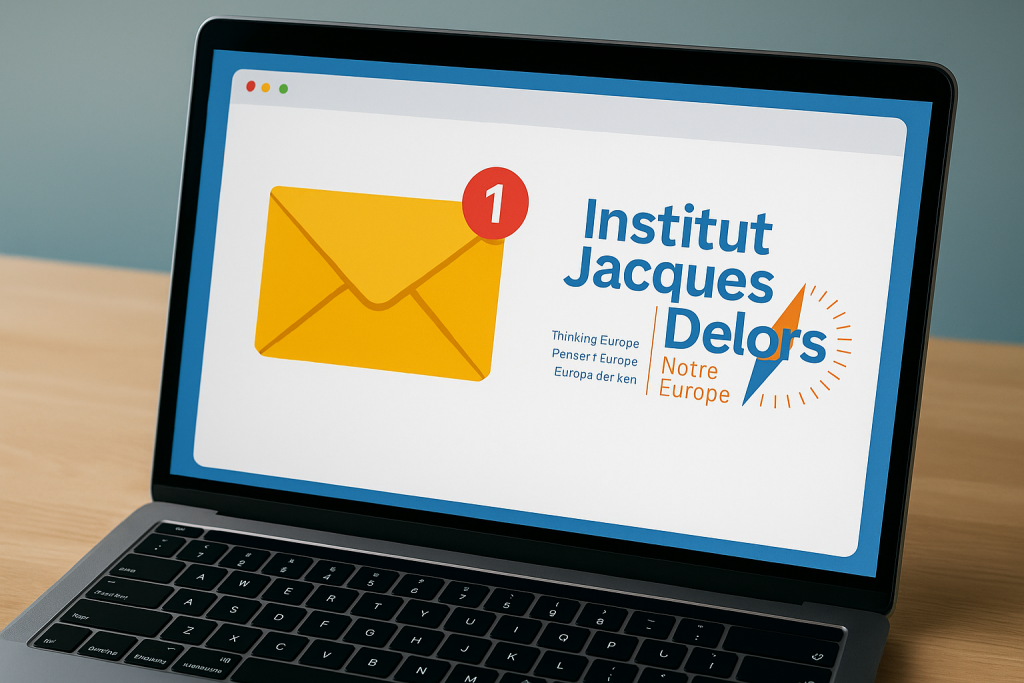Young people or the future of Europe
Newsletter June 2025

June is traditionally the month of our Jacques Delors Conference, which marks the end of the annual programme of the Académie Notre Europe. It is also the time when preparations begin for the next class, and new young participants are recruited to join us. Youth, therefore, plays a central role in our daily activities this month. And indeed, after a long winter—both literally and metaphorically—shining a spotlight on Europe’s youth is also a way of seeking a glimmer of hope in a world overwhelmed by chaos.
Let us remember: in 2019, young Europeans took to the streets—peacefully but resolutely—to demand a livable future on our heating planet. They then went to the polls to support a European project aligned with their aspirations. The result was the Green Deal. In 2023 and 2024, they raised their voices again—this time in solidarity with the innocent in Palestine, Iran, and elsewhere. In schools and on university campuses, they refused to remain silent in the face of injustice. They shouted, sometimes very (too?) loudly; they sang, they dreamed, they hoped.
Where are they in 2025? Disillusioned and abstaining from vote after vote? It is true that the mood is somber and the future uncertain. Generation Z has already endured two financial crises, a global pandemic, and the return of war to the European continent. It has witnessed horrors unimaginable just a few years ago—in Ukraine, Gaza, Sudan, and beyond. The climate is changing, the far right is gaining ground, and backlash is becoming the norm. One can easily imagine young people watching, stunned and disheartened, as the powerful sleepwalk toward disaster and the older generations appear resigned. Their despair is deep, often silent, and painfully tangible. Hope feels increasingly fragile.
And yet we cannot give up on it. In an ageing Europe, we need a youth that is engaged, determined, and ready to fight for a better future. Jacques Delors placed young people at the heart of the European project—both as key actors in its future and as a priority for EU policy. He envisioned the Erasmus programme, a cornerstone of youth mobility, as a way to “give Europe a soul.” On the centenary of his birth, the young members of the Académie Notre Europe wish to honour his legacy by reflecting on today’s European challenges through the lens of his vision and his methods. At the fifth Jacques Delors Conference, taking place on 20 June at the Banque de France, they will present an original theatrical performance directed by Julien Avril: Delors entre nos mains – le flambeau de l’architecte (Delors in our hands – the architect’s torch). We warmly invite you to attend this tribute and performance by registering for the conference.
In his report Much more than a market, Enrico Letta places young people at the centre of completing the single market. He proposes a fifth freedom—the freedom to learn, research, and innovate—calling for reinforced rights to education, mobility, and scientific collaboration across Europe. He also introduces the idea of a “freedom to stay,” enabling young people to build a future where they were born, thanks to support for public services, social infrastructure, and the local and solidarity-based economy. Finally, he suggests establishing a permanent Citizens’ Conference—modelled after the Conference on the Future of Europe—to strengthen democratic legitimacy and ensure youth participation. One year after the Letta Report, we will have the opportunity to explore these proposals with the European Commission’s Executive Vice-President, Stéphane Séjourné, guest of honour at this year’s Jacques Delors Conference.
Erasmus, European Solidarity Corps, ALMA, youth policy dialogues : Europe has many tools to empower young people—enabling them to participate, access quality training, find decent jobs, and above all, be heard and taken seriously. Restoring faith in the future is not a luxury; it is a political necessity. Young people have not vanished—they are waiting to be invited in. It is up to us to reopen the door.





